When it comes to planning board travel, having a clear and comprehensive policy is essential for ensuring that everyone is on the same page. Establishing guidelines not only helps streamline the process but also creates an environment of accountability and transparency. Whether you're traveling for meetings, conferences, or site visits, understanding the expectations can enhance both the experience and outcomes. To learn more about crafting an effective board travel policy, keep reading!

Purpose and Scope
The board travel policy outlines the guidelines and procedures governing travel for board members of the organization, ensuring an efficient, transparent, and cost-effective approach to travel arrangements. This policy applies to all board members engaged in official duties, including attending meetings, conferences, or events that further the organization's mission and strategic objectives. The purpose is to delineate the protocols for travel authorization, expense reimbursements, and travel bookings, fostering accountability and compliance with financial regulations. Furthermore, the travel policy aims to enhance the board's capacity to serve effectively while maintaining budgetary discipline.
Eligibility and Approval Process
The board travel policy outlines clear eligibility criteria and a structured approval process to ensure responsible and equitable use of organizational resources. Eligible individuals include board members and key executives involved in strategic decision-making and governance. Travel requests must be submitted through the designated online platform at least ten business days prior to the intended travel date, ensuring sufficient review time. Each request undergoes evaluation based on factors such as the purpose of travel, cost-effectiveness, and alignment with organizational goals. Approval requires signatures from both the board chairperson and the finance officer, ensuring financial accountability. Detailed documentation, including itineraries and expense estimates, must accompany requests to facilitate informed decisions. The policy emphasizes transparency and fiscal responsibility while enabling essential travel for board-related activities.
Travel Expense Coverage
Travel expense coverage policies outline the financial responsibilities and allowances for employees undertaking business trips. Typically, these policies specify eligible expenses, including transportation costs (airfare, mileage reimbursement for personal vehicle use), lodging expenses (hotel stays typically capped at a certain amount per night), and daily allowances for meals (often a per diem rate varying by location). Additional items such as parking fees, tolls, and necessary business-related supplies may also be included under coverage guidelines. Documentation requirements, such as receipts, invoices, and travel itineraries, are crucial for reimbursement processing. Furthermore, prior approval processes may be stipulated for travel arrangements exceeding a specific budget threshold, ensuring that all expenditures align with the company's fiscal policies and travel objectives. Adherence to this travel expense coverage policy is essential for maintaining financial accountability and promoting responsible spending during business travel engagements.
Booking and Accommodation Guidelines
Travel policies outline the procedures for booking and accommodation for employees traveling for business purposes. Adhering to these guidelines ensures compliance with corporate standards while maintaining cost-effectiveness. Employees should book flights through approved channels to secure the best rates, with considerations for preferred airlines that offer corporate discounts. Accommodation bookings must be made at designated hotels compliant with company policies, with rates typically not exceeding $200 per night unless pre-approved for special circumstances. Travelers should utilize company credit cards for expenses, including lodging and transportation, to streamline reimbursement processes and maintain budget control. Any deviation from these guidelines requires written justification and prior approval from management to ensure accountability and financial prudence. Documenting all travel arrangements is essential for verification and future reference, ultimately promoting transparency and strategic resource management.
Reporting and Reimbursement Procedures
Travel policy for board members outlines specific reporting and reimbursement procedures to ensure clarity and accountability during official trips. Board members, for instance, traveling for meetings at corporate headquarters in New York City must submit detailed expense reports within 30 days. Required documents include original receipts (necessary for any expenditure exceeding $25) and a travel itinerary highlighting purpose and dates. Reimbursement requests can typically be submitted via online forms to the finance department, which operates under a $500 cap per trip. Failure to adhere to these guidelines can result in delayed reimbursements or disqualification from reimbursement. Timely communication with the finance team is crucial to resolve any discrepancies.

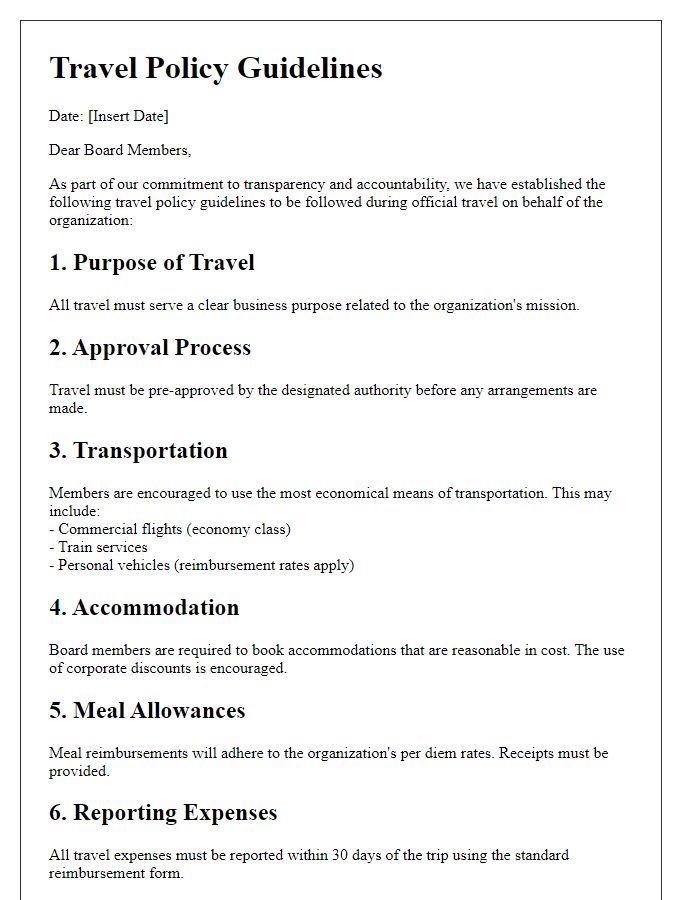
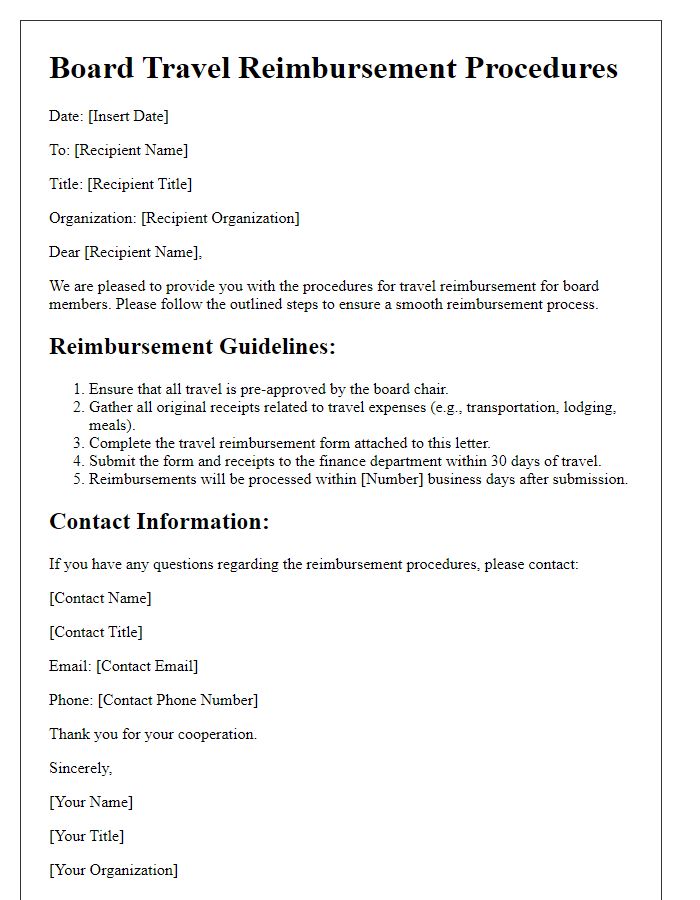
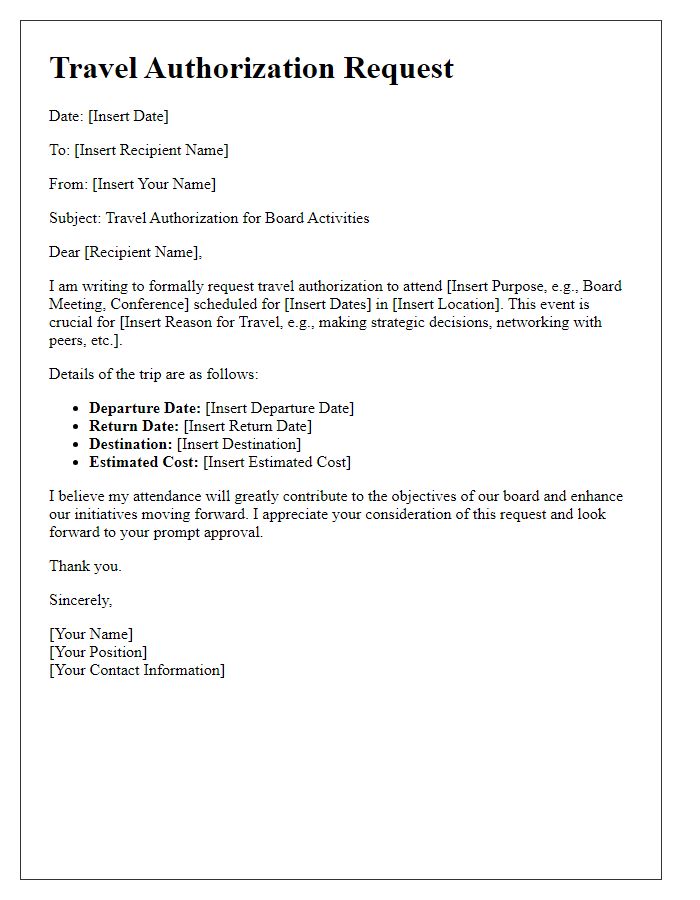
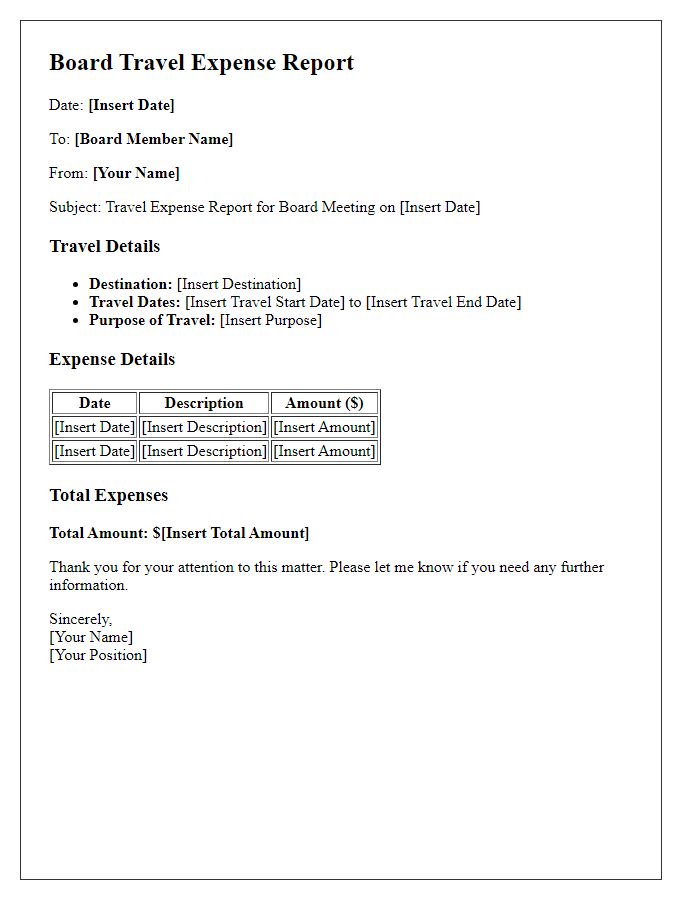
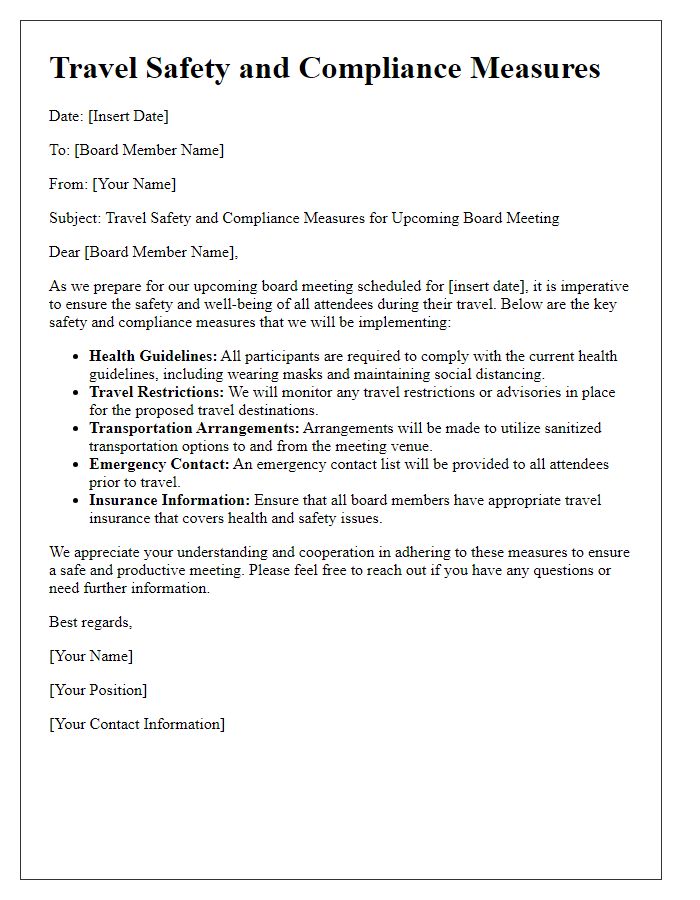
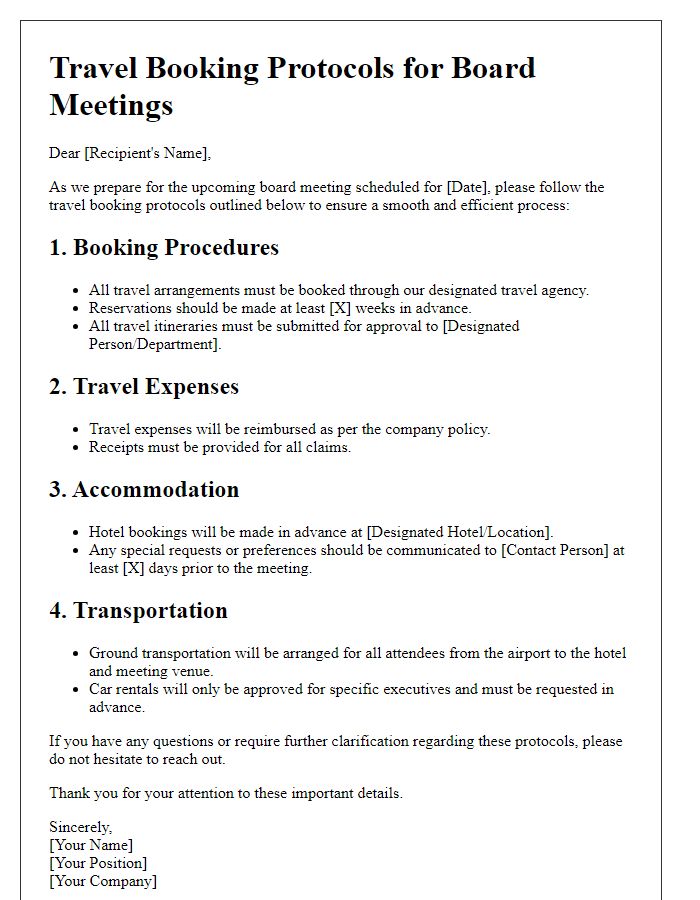
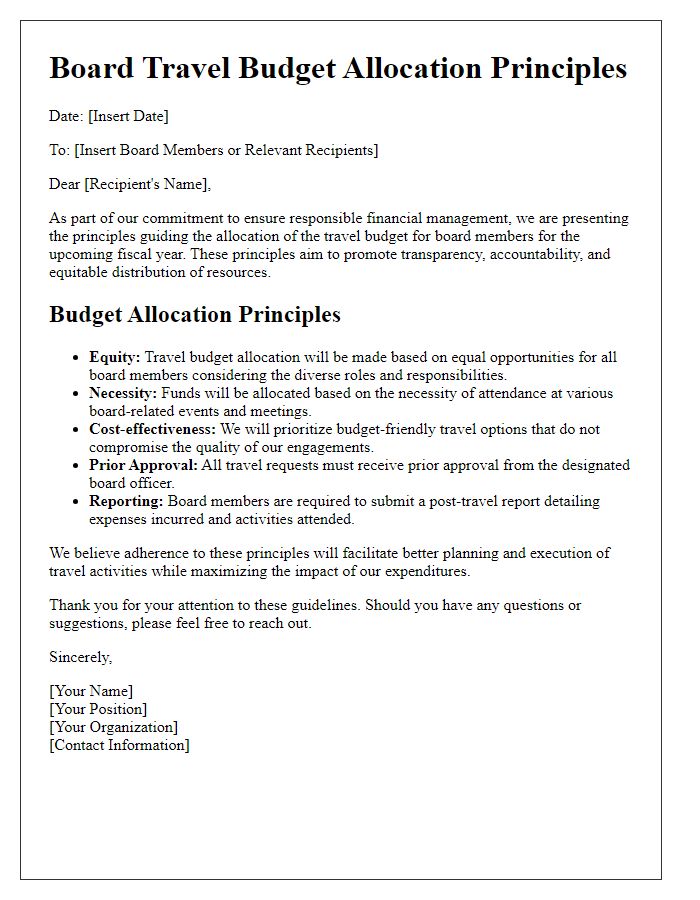
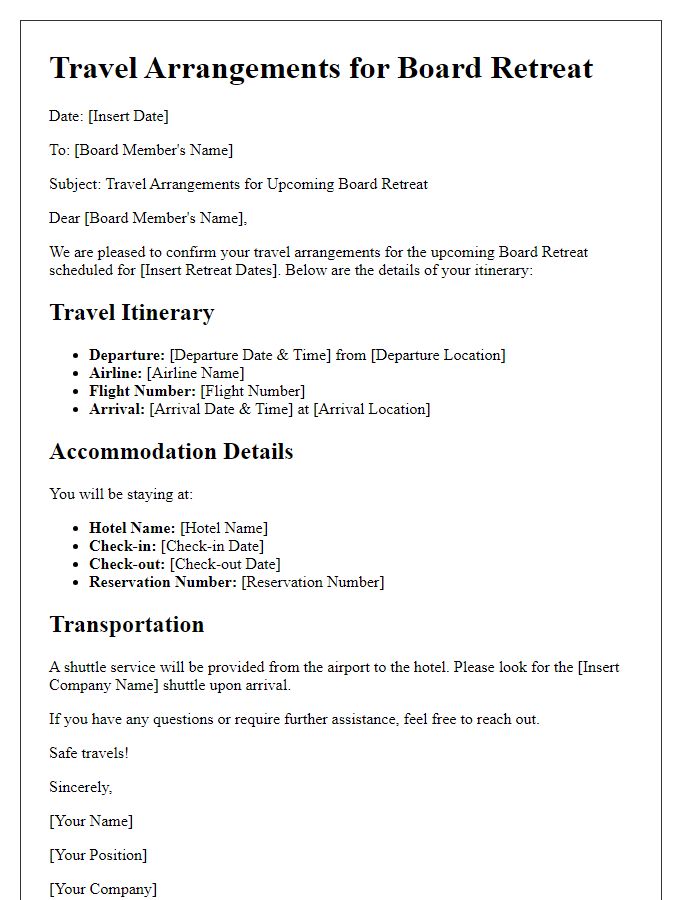
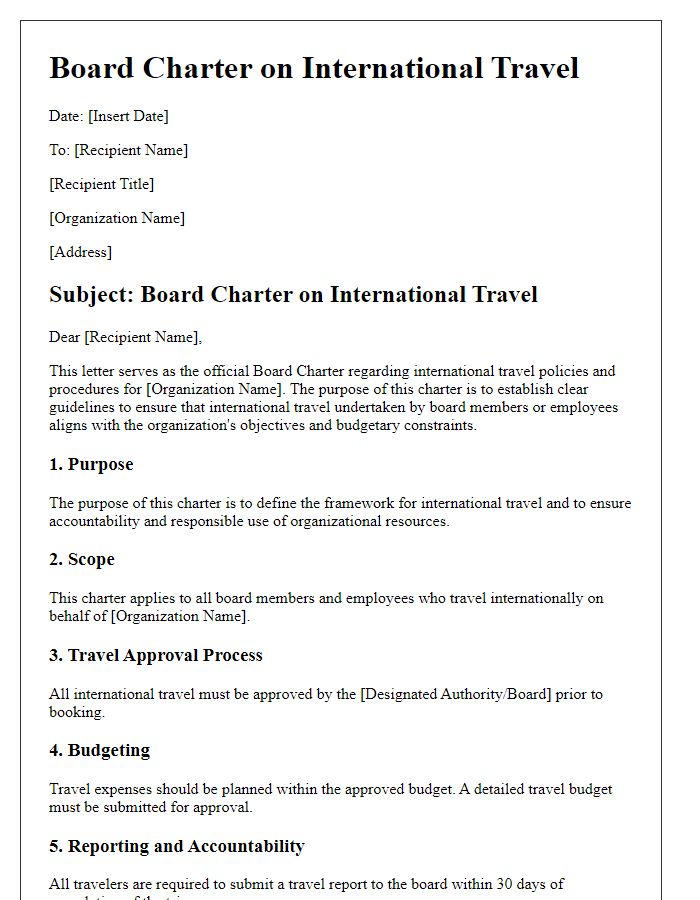
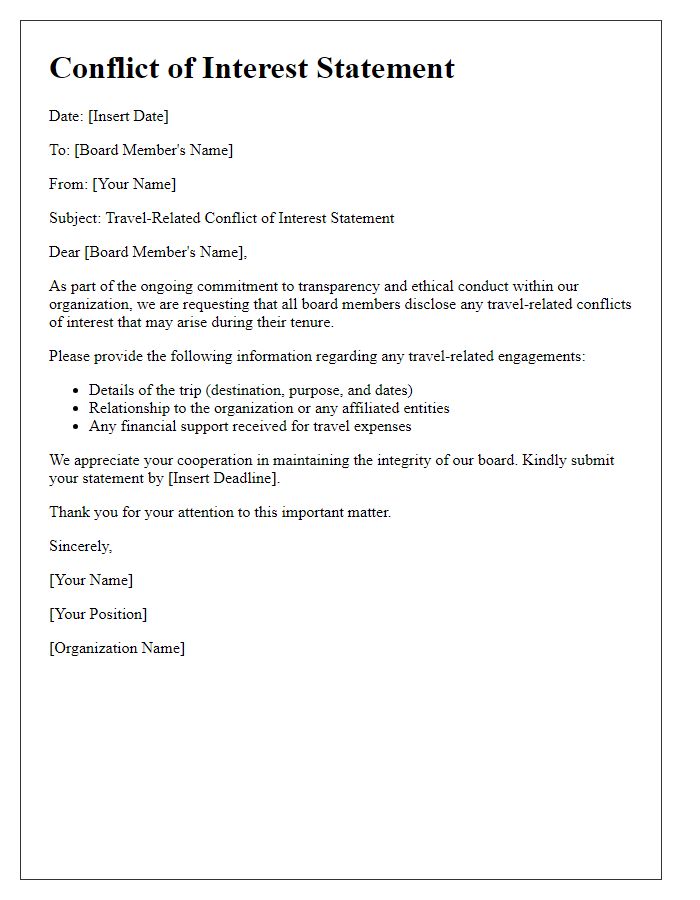


Comments